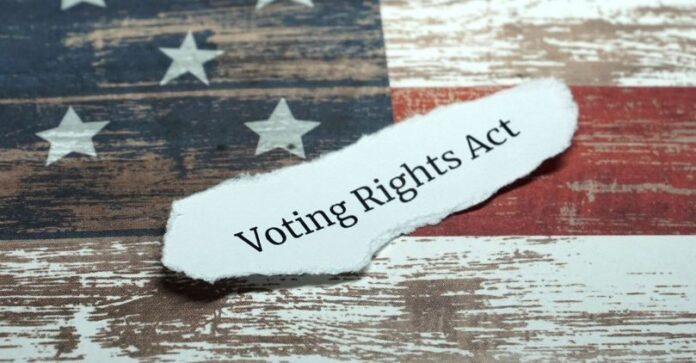
The next several days will also reveal whether Democrats have the resolve, strength, and even the negotiating skills to get one of their own on board with changing Senate filibuster rules.
By Stacy M. Brown, NNPA Newswire
The coming weeks will tell if President Joe Biden’s “forceful” voting rights speech in Georgia on Tuesday, January 11, results in any tangible movement to blunt suppressing laws in Republican-led states around the country. Notably, the next several days will also reveal whether Democrats have the resolve, strength, and even the negotiating skills to get one of their own on board with changing Senate filibuster rules.
Doing so would allow the John Lewis Voting Rights Advancement Act and the Freedom to Vote Act to pass. Sen. Joe Manchin (D-W.V.) continues to oppose any filibuster changes staunchly. The conservative has displayed an unwillingness to help push through bills that would help level the playing field for many underserved Americans – including his constituents in the Mountain State.
“The next few days, when these bills come to a vote, will mark a turning point in this nation. Will we choose democracy over autocracy, light overshadow, justice over injustice?” President Biden asserted in excerpts of a speech released before his Georgia visit.
“I know where I stand. I will not yield. I will not flinch,” the President continued.
“I will defend your right to vote and our democracy against all enemies, foreign and domestic. And so, the question is where will the institution of United States Senate stand?”
White House Press Secretary Jen Psaki called the President’s words “forceful.”
“He’s quite focused on ensuring the American people understand what’s at stake here,” Psaki insisted. “He will forcefully advocate for protecting the most bedrock American rights: the right to vote and have your voice counted in a free, fair, and secure election that is not tainted … by partisan manipulation.”
Psaki continued: “He’ll make clear in the former district of the late Congressman John Lewis that the only way to do that is for the Senate to pass the Freedom to Vote Act and the John Lewis Voting Rights Advancement Act.”
Despite an expected “no” vote from Manchin, Senate Majority Leader Chuck Schumer (D-N.Y.) insisted he would bring to the chamber measures to alter or abolish the filibuster.
He said he would push for a vote on the John Lewis Voting Rights Advancement Act and the Freedom to Vote Act. To do so, all 50 Senate Democrats must vote in the affirmative.
All 50 GOP Senators likely will vote against each of those measures. Vice President Kamala Harris would cast the tie-breaking vote, giving Democrats the majority. Georgia stands among 19 states that have passed voter suppression laws since Republican Donald Trump lost the presidency to Joe Biden in 2020.
According to the Brennan Center for Justice, 34 voter restriction or suppression laws have passed across the country since the 2020 election, where Trump and some Republicans falsely claimed fraud. Brennan Center officials noted that 13 more restrictive laws are in the works, including one in Georgia that would ban the use of ballot boxes altogether.
Before President Biden visited Georgia, Dr. Martin Luther King Jr.’s family said they didn’t want any celebrations of the slain civil rights hero’s national holiday unless meaningful voting rights legislation passed.
Further, the Asian American Advocacy Fund, Atlanta North Georgia Labor Council, Black Voters Matter Fund, GALEO Impact Fund, and New Georgia Project Action Fund boycotted President Biden’s speech. They demanded that the President remain in Washington where he might help usher through voting legislation to protect disenfranchised voters.
“We don’t need another speech. What we need is action. What we need is a plan,” demanded Cliff Albright, executive director of the Black Voters Matter Fund.
While Sen. Schumer has called on his colleagues to vote on filibuster and voting rights legislation by January 17, Martin Luther King Jr. Day, White House officials said they’re working hard to help get legislation passed.
“We understand the frustration by many advocates that this is not passed into law yet,” Psaki stated. “[President Biden] would love to have signed this into law himself. But [the speech] is an opportunity to speak about what the path forward looks like to advocate for – for this moving forward in the Senate.”
–
Voting Rights Battle Ahead in Early 2022
500 Black State Legislators Address Voting Rights and Other Issues in Atlanta
Senate Republicans Again Shoot Down John Lewis Voting Rights Advancement Act


